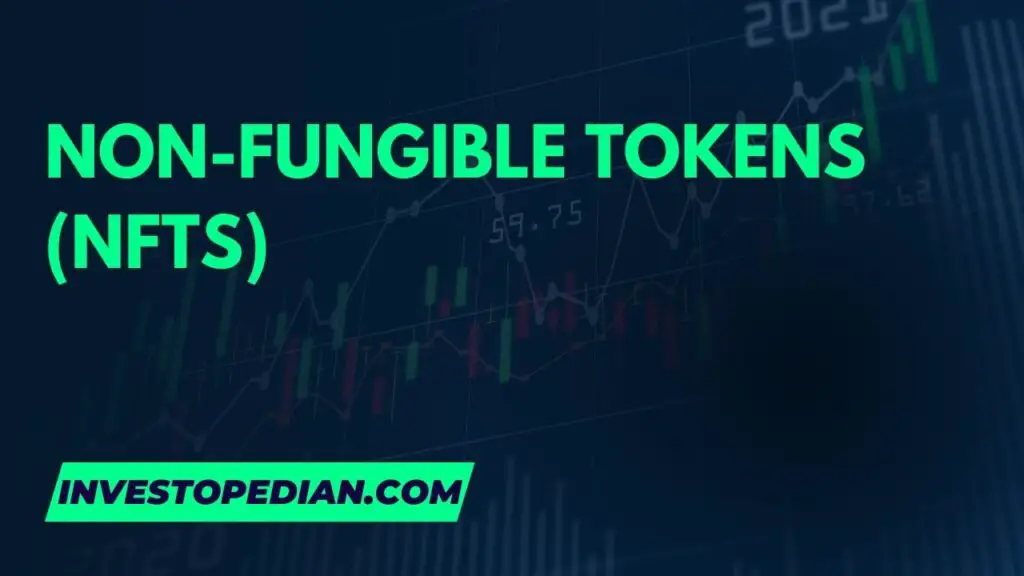Non-fungible tokens, or NFTs, have taken the digital world by storm. These unique digital assets, built on blockchain technology, have the power to turn anything into a valuable collectible, from art to tweets. Unlike cryptocurrencies, NFTs cannot be directly swapped for one another.

In this guide, we’ll delve into the world of NFTs, exploring their definition, how they work, and their potential impact on various industries. Plus, we’ll address the burning questions surrounding NFTs and what they mean for individual investors.
Definition and Origins of NFTs
NFTs are tokens that represent ownership of digital assets. Their ownership is verified through blockchain algorithms, with Ethereum being the most popular network for NFTs. The roots of NFTs can be traced back to Colored Coins in 2012, which were essentially customized bitcoins with unique properties. From there, they evolved, giving birth to CryptoPunks in 2017, the first NFTs on the Ethereum network. However, it was Cryptokitties in 2017 that truly ignited the NFT frenzy. One particularly rare Cryptokitty sold for a whopping $170,500 in 2018. The trend continued to grow, with a CryptoPunk selling for $7.57 million in March 2021.
How Do Non-Fungible Tokens Work?
Think of NFTs as digital proof of ownership verified by the blockchain—a secure and unchangeable ledger. Each transaction on the blockchain is validated by computers worldwide through complex mathematical processes. This transparency ensures that NFT owners can indisputably prove their ownership, making theft virtually impossible.
NFTs in Various Industries
Art: NFTs are revolutionizing the art world by providing a secure and transparent way to buy, sell, and authenticate digital artworks.
Sports: NFTs offer sports fans a chance to own unique moments in the form of digital collectibles. For instance, NBA Top Shot auctions NFTs of iconic player moments during games.
Read: How to Invest in Treasury Bonds and Bills: A Comprehensive Guide
Read: Achieve Your Millionaire Dream: 6 Steps to Wealth by 30
Licensing and Smart Contracts: NFTs have applications in licensing intellectual property, such as music. Creators can earn royalties every time their NFT is resold.
Real Estate: NFTs can represent digital ownership of physical assets, like real estate properties. They provide enhanced security and ease of access compared to traditional paper deeds.
Non-Fungible Tokens vs. Cryptocurrency
NFTs and cryptocurrencies both use blockchain technology, but they differ significantly in terms of fungibility. Cryptocurrencies like Bitcoin are interchangeable, with one unit having the same value as another. In contrast, NFTs are non-fungible, each possessing unique identifiers and metadata that cannot be replicated. This uniqueness, coupled with digital media, contributes to their appeal.
Pros and Cons of NFTs
Pros of Investing in NFT :
Counterfeit Prevention: NFTs are extremely difficult to counterfeit.
Empowering Creatives: Artists and creators can monetize their work online.
Digital Convenience: Online storage of NFTs eliminates concerns associated with physical collectibles.
Cons of Investing in NFT:
Speculative Market: NFT prices have seen significant fluctuations driven by speculators.
Online Security Risks: As with any digital asset, online security is a concern.
Complexity for Newcomers: Understanding blockchain technology may be challenging for newcomers.
What It Means for Individual Investors
If you’re considering NFT investments, ask yourself if you view them as collectibles or investments. NFT prices are highly volatile, driven by scarcity and demand. Additionally, be aware of gas fees associated with NFT transactions.
Fraudsters and scams in the NFT space are a real concern, including replica stores and counterfeit NFTs. Due diligence is crucial. The regulatory landscape for NFTs is evolving, and their classification as securities is still a gray area.
In summary, NFTs are transforming the digital ownership landscape. Whether you’re an artist, sports enthusiast, or investor, NFTs offer exciting opportunities. However, their rapid rise in popularity has also brought challenges and uncertainties. As you navigate this evolving space, research and caution are your best allies.
FAQs
1. Are NFTs like cryptocurrencies?
NFTs and cryptocurrencies both use blockchain technology but differ in fungibility. Cryptocurrencies are interchangeable, while NFTs are unique and non-interchangeable.
2. What industries benefit from NFTs?
NFTs have applications in art, sports, licensing, real estate, and more. They enhance authenticity, ownership, and security in these sectors.
3. Are NFT prices stable?
NFT prices are highly volatile, influenced by scarcity and demand. Prices can fluctuate significantly.
4. Are NFTs regulated?
The regulatory framework for NFTs is evolving. Classification as securities depends on the specific NFT and its use case.
5. How can I protect myself from NFT scams?
Due diligence is crucial. Be cautious of replica stores, counterfeit NFTs, and giveaways. Only use money you can afford to lose.
Remember, the world of NFTs is still relatively new, so proceed with care and explore the opportunities it offers with informed decision-making.
<a href="[Link deleted]pharmacies no prescription <a href="[Link deleted]pharmacy without prescription
<a href="[Link deleted] <a href="[Link deleted]pharmacy online